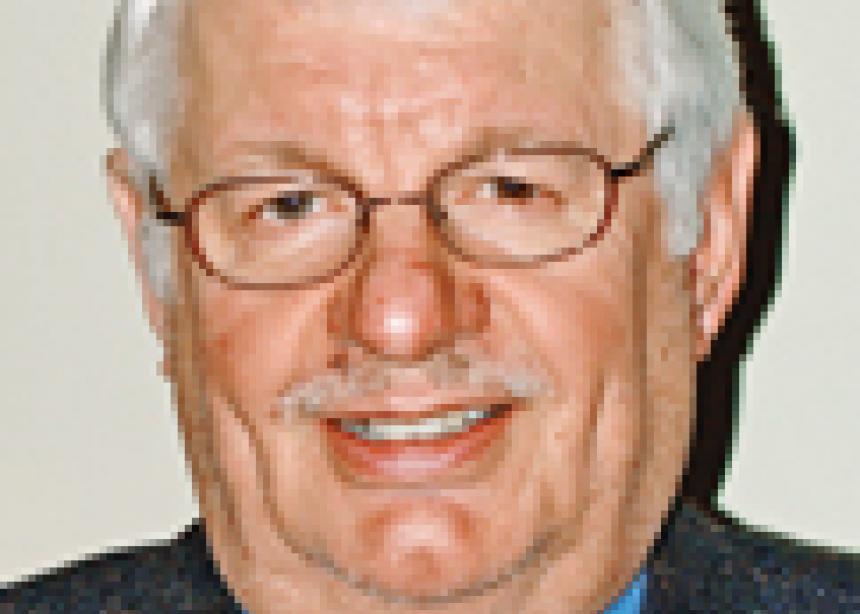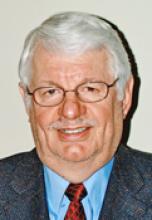The church, or congregation, as a “royal priesthood” was announced as one of our core beliefs by the Anabaptist Reformers nearly 500 years ago, setting us apart from our Catholic-Protestant counterparts who, in that time and place, were perceived to have corrupted the faith with their vertical view of a believer’s relationship to God.
Taking seriously Apostle Peter’s declaration that every person who believes in Jesus Christ is a “priest,” Anabaptists went even further to say that final authority rests with the community of faith, not the pope, a presbytery or any hierarchical designate presumed to have exclusively direct channels to God.
And while the language has changed from “priesthood” since the Dordrecht Confession of 1632 to our most recent confession of 1995, as “an assembly of those who voluntarily commit themselves to follow Christ in life and to be accountable to one another and to God,” we still hold to the belief of direct access and to the discerning community as the final word. I say we still believe it. Practising it is another matter. Priesthood is still a work in progress.
Cultural advancement and shifting models of leadership in society and in the church have sometimes put this core belief in jeopardy. As our communities of faith migrated from western and eastern Europe and from southern Russia, the realities of holding faith communities together in changing political environments sometimes gave way to authoritarian bishops and elders who knew best what was right and “spiritual” for the laity, taking for themselves the “priestly” role of authority and biblical interpretation.
In more modern times, the shift from the vocational preacher ordained by lot to the paid, seminary-trained, professional pastor or team of pastors, has tended to water down the practice of priesthood when the congregation looks to the pastor or team to do the work of the church because that’s “what we hired them for.”
That’s why what happened at a leadership seminar last month at the 64th gathering of Mennonite Church Manitoba in Gretna is significant, not only for that area church but for all congregations across Canada. The area church planners courageously tackled what is sometimes known as the “elephant in the room” of church conflict by looking at the quality of leadership and what has come to be termed as “team dysfunctions.”
Resource person Don Rempel Boschman, lead pastor of a team ministry at Douglas Mennonite Church in Winnipeg who is finishing up his work in this field at Fuller Theological Seminary, Calif., drew on the work of management guru Patrick Lencioni, as well as the scriptural examples of Jethro, father-in-law to Moses, and of Jesus’ choosing of his 12 disciples, to point up areas of leadership and congregational conflict in carrying out ministry.
While Boschman carefully laid out five obstacles to effective leadership as an absence of trust, fear of conflict, lack of commitment, avoidance of accountability and inattention to results, I couldn’t help but wonder if all of those didn’t also apply to congregations as they interact with their pastors in doing “priesthood” or of everyone being a priest, as we believe.
I also found myself wondering if a congregation can be diagnosed as “dysfunctional” as well. When the “priesthood” breaks down, isn’t there an obvious absence of trust, not only in the leadership, but also in each other? In such situations, rumours run rampant about this or that “believer,” wrong motives are ascribed, sides are taken on sometimes trivial matters masquerading as theological issues.
All the while, isn’t there, at the same time, a fear of conflict and the subsequent nursing of personal hurts and perceived injustices which form an ongoing undercurrent of dissatisfaction and disaffection? And don’t these lead, too, to the other breakdowns of commitment, accountability and inattention to results?
We are not without help here. The Manitoba conversation is opening a window of opportunity to renovate our core belief in the priesthood. Leaders and congregations need to work together in first acknowledging the problem, then by addressing it in productive ways through a prayerful and honest look at themselves.
And professional help is available. MC Manitoba, to its credit, has named three professionals as “conflict advisors” in the persons of Dean Peachey, Lois Edmunds and Erwin Warkentin.



Add new comment
Canadian Mennonite invites comments and encourages constructive discussion about our content. Actual full names (first and last) are required. Comments are moderated and may be edited. They will not appear online until approved and will be posted during business hours. Some comments may be reproduced in print.